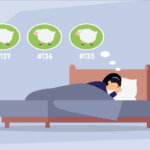Herbal medicine, or supplements, have been used for millennia to treat a variety of health conditions. They can be swallowed as pills or powders or brewed as tea. However, the FDA considers herbal supplements foods, not drugs, so they are not subject to regulation. Talk to your doctor about your symptoms and management of medical conditions.
More about Johns Hopkins’ Guide to Herbal Medicine











